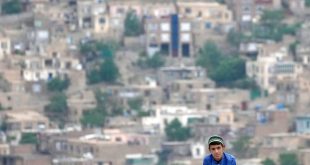Despite facing a whole array of problems, local media is doing to the best of its ability to protect national interests, demonize the insurgents, counter foreign propaganda, foster national unity, and educate people. But unfortunately, the media could not sail through the difficult circumstances to become independent in true sense. Sometimes, the government forms complaints commission to curb media freedom and most of the time deny access to information despite approval of the Law on Access to Information. Not only the information law but the constitution also protects media freedom, but the articles in this aspect are not implemented in letter and spirit.
Instead of taking steps to ensure freedom of speech, the government has intensified efforts to bring media under tight control. According to NAI, an organization supporting media freedom in the country, the National Security Council has passed a resolution to prevent police chiefs and spokespeople, except the interior ministry’s spokesman, from giving information to media regarding security-related issues. As per the resolution, only the spokesman of Ministry of Interior would be authorized to respond to the journalists’ queries. The concept of embedded journalism has been buried as the newsmen would not be able to report from the battlefield or obtain comments of military commanders on the ground. Access to Information Law has been dumped and fundamental rights have been violated by the very custodians of the constitution.
No doubt, this step would well backfire and increase troubles for the government. The decision would increase gap between public and authorities further, because media is the only bridge that connects the two. Most importantly, this decision of the government will provide an opportunity to the Taliban to promote their extremist propaganda without facing a counter force on the ground in form of liberal and progressive media. Hence, the government should not treat media as dead wood. The concept of embedded journalism should be promoted to the possible extent. It would boost morale of security forces as well as general public. The more public have information about security situation they would support the government’s decision. But if they were kept in dark then the fears are high that they could be misguided by foreign propaganda and insurgents. The government could control local media, but cannot foreign media. People could access news about law and order situation online. Therefore, the resolution would not help the authorities at all.
Instead of curtailing media freedom, the authorities should ensure that articles 6, 7, 24, 34 and 50 of the constitution are implemented. The government is bound to respect human rights and protect freedom of speech, unless harms rights of others or public security. In this case media has put its weight behind public security and national interests. If the National Security Council’s resolution was enforced the blowbacks would be serious. The first reaction of the media could be to boycott coverage of press conferences and events arranged by the government departments. Secondly, it would bring credibility of the current government under question at national and international platforms.
 Afghanistan Times Latest News and Analysis from Afghanistan and the Region
Afghanistan Times Latest News and Analysis from Afghanistan and the Region

